Between September 30 and October 7 2018, 21 Tsinghua MBA students, led by Professor Zhu Yujie and Zhang Jingying, went to Chengchi University for Chinese Mainland & Taiwan Business Perspectives course. Teachers and students across the straits joined together to celebrate a fruitful and joyful National Day holiday.
Chinese Mainland & Taiwan Business Perspectives course, co-worked by Tsinghua SEM and Business School of Chengchi University, is a short term exchange program for MBA students. Both sides select 20-24 MBA students each year to participate in the program, and the students visit Chinese mainland and Taiwan region respectively for campus study, enterprises visit and other cultural activities, with the aim to increase communication between students and teachers from both sides and to deepen the mutual understanding of the business, economy, society and culture across the Taiwan Straits.
In the course five groups are formed for discussion and exchange on different research topics: 1. Internet/big data’s influence on business model; 2. Analysis of financial environment across the straits; 3. Development and business potential for senior care industry across the straits; 4. Development of cultural and creative industry across the straits and introduction to key enterprises across the straits; 5. Entrepreneur environment and opportunities across the straits. On the afternoon of October 1, Tsinghua students firstly reported their industry research results on their group topics. Teachers and students of Taiwan region gave proactive feedback and added much information of relevant industry. Everyone shared with others their own experience and wisdom and the class was full of applause for the excellent presentations. The class initiated the learning journey at Taiwan region in joyous atmosphere.
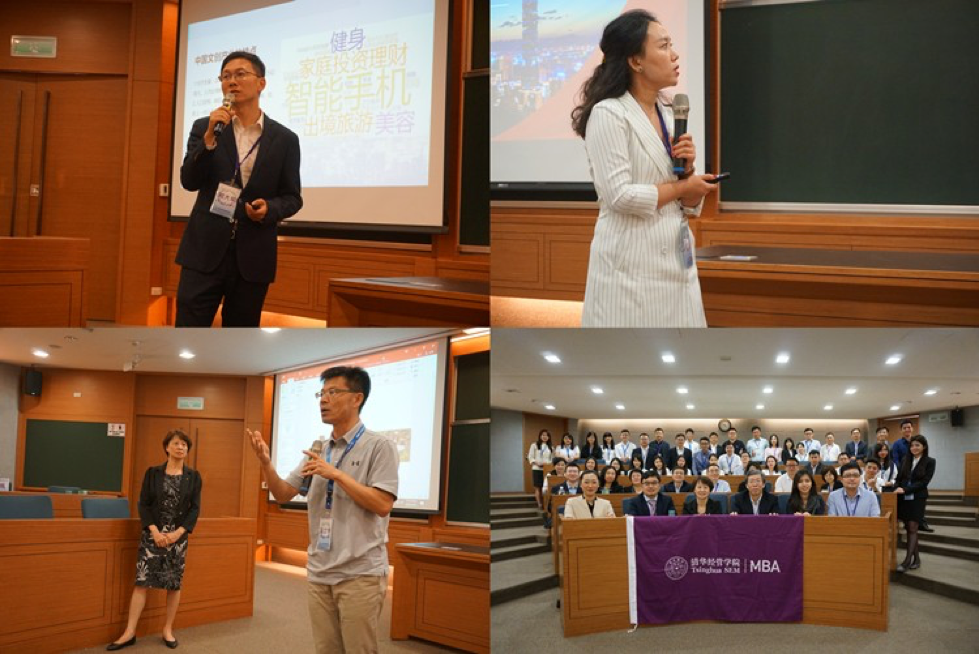
Study: Three Great Professors with Three Excellent Classes
On the morning of October 2, Professor Wu Liyu of Business Management Department of Chengchi University, lectured on Strategic Marketing. He formulated marketing strategy from the perspective of “cost”, and proposed the idea of “4C pyramid”, that is, of reducing “benefit/cost-performance ratio” cost, reducing “knowing” cost, reducing “trust cost” and “specific holdup/tied-up” cost for targeted customers. He also impressed students with the 4C model by using case analysis like Factelier, Pinduoduo, Xiaolanbei, Langi Yatou and Xianrufang.
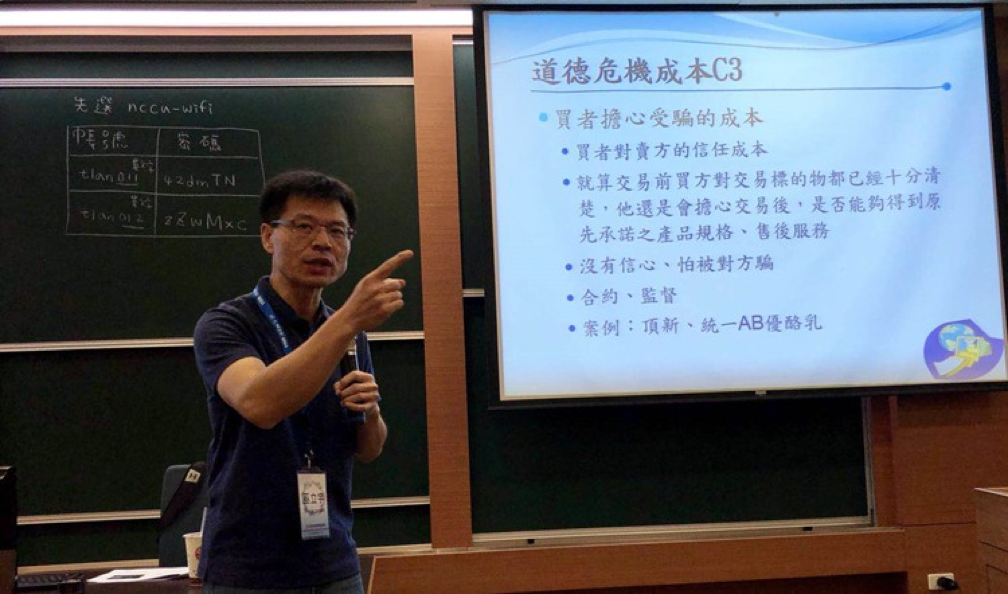
On the morning of October 3, Mr. Guo Bingshen’s case analysis on Fraunhofer : Innovation in Germany is mind-blowing and thought-provoking. In addition to Professor Guo’s teaching method of in-depth examination, the case itself has important practical significance under China’s current macro background of industrial upgrading. Innovation is the origin of national competitiveness. Why could the US take the lead in front-end research, development and design and back-end market transformative innovation? Why could Germany find no rival in progressive innovation of precision manufacturing? Could China also develop a state-led multi-disciplinary application research platform as Germany did in Fraunhofer?
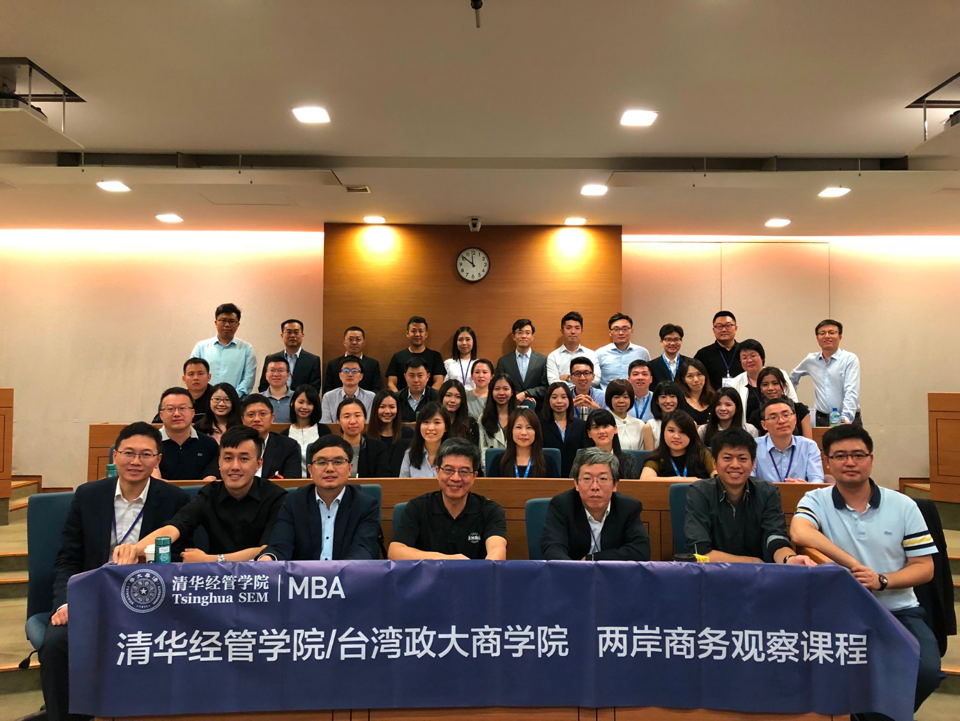
On the morning of October 4, Professor Yu Zhuomin, a real gentleman, analyzed the case in a wise and pleasant manner. Managing A Severe Crisis:PharmaCorp in Ukraine, as an extreme case of war crisis, illustrates the procedures and methods for making scientific decisions and how to make comprehensive and balanced decisions on aspects of exterior environment, internal conflict, organization structure and resources allocation.
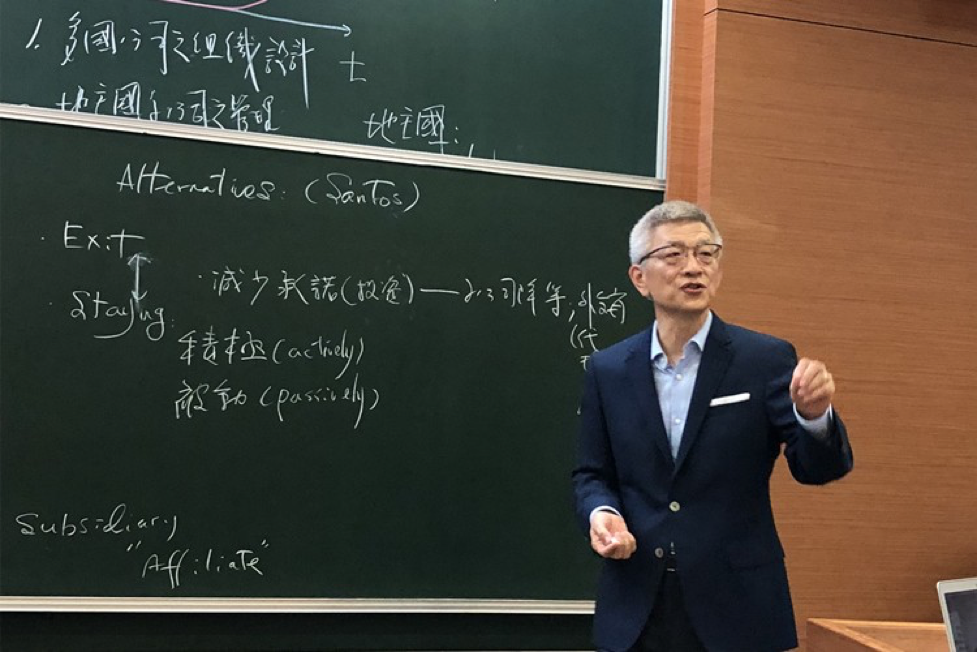
Visit: Technology, Finance, Senior Care, Cultural Creativeness, Human Nature-oriented and Refinement as Priority
On the afternoon of October 2, students and teachers went to Taiwan Hsinchu Science Park and visited Taiwan Semiconductor Manufacturing Company (hereinafter referred as TSMC). The company, established in 1987, is the first enterprise specialized in semiconductor manufacturing service (pure-play foundry) in the world, and is also the semiconductor company with top global market value. As of April 19 2018, TSM at New York Stock Exchange was valued at 217.4 billion US dollars, with the price-to-earning Ratio of 19. In the Innovation Building of TSMC, the abundant and delicate interactive display method in different forms and the professional and pleasant introduction by the guide are impressive, including 3D projection sand table model, virtual interview, VR experience, light and shadow device art, and etc.. The company’s founder Mr. Zhang Zhongmou’s sense of mission and TSMC’s commitment to innovation as well as the motto in the exhibition hall that “the grave challenge is followed by bright future” aroused our resonance in.
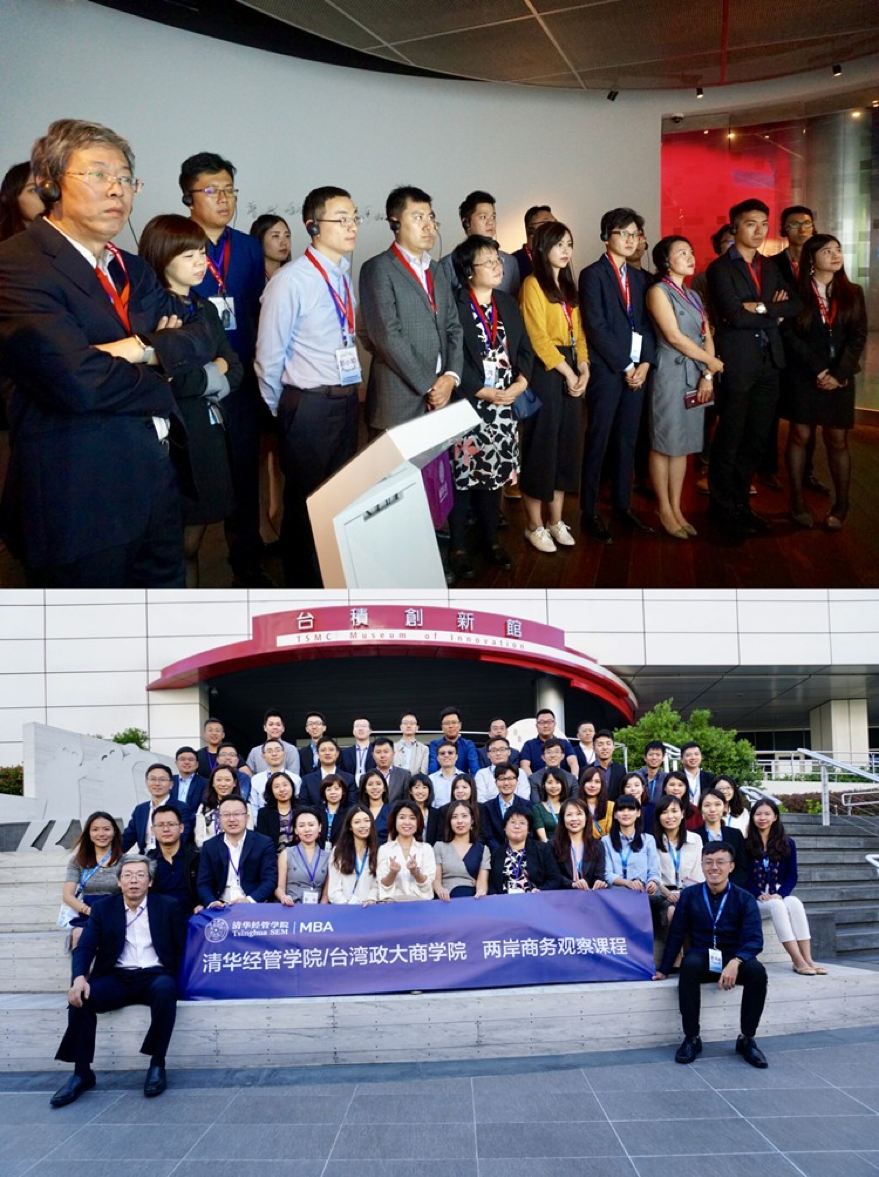
On the afternoon of October 3, students and teachers visited CTBC Bank. Du Taili, director for CTBC’s Chinese mainland affairs shared about the history, current situation and future of the mainland and Taiwan’s banking industry. Students and teachers also visited the exhibition hall and headquarters building. CTBC, established in 1966 by Gu Zhenfu, is a private bank of relative scale in Taiwan. The bank has 147 subsidiaries in Taiwan region, 67 subsidiaries in 12 overseas countries and regions, with total financial assets equaling to 418 billion RMB. It is the biggest private and issuing bank in Taiwan as well as the bank with highest foreign shareholding ratio.
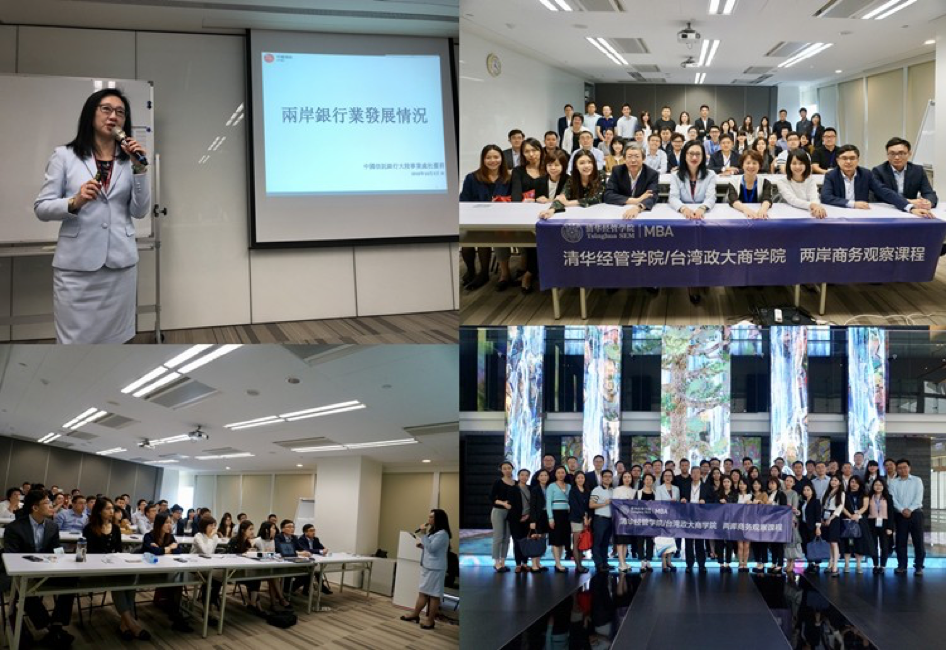
On the afternoon of October 4, students and teachers visited the famous Chang Gung Health and Culture Village. The village, located beside the expressway of Guishan Town of the Taoyuan County in Taiwan, covers about 34 hectares over a hilltop. It is established by Wang Yongqing, Chairman of Formosa Plastic Group, with an investment of 50 billion new Taiwan dollars based on Chang Gung Hospital. The village has 3600 households and the houses are all seven-floor buildings. People over 60 with their spouses over 50 are qualified to apply for residence in the village. Medical examination is required before moving in. People with illness who cannot take care of themselves could live in Chang Gung Nursing Home by the side. The village is of barrier-free design with 24 hour security guard. People need to scan their cards to enter or exit the village. The village has service facilities like supermarkets, bookstores and banks. Residents could cook by themselves or go to dining areas of cafeterias and restaurants for meals or select to deliver meals to their rooms. The hardware condition of the village is remarkable considering the barrier-free facility, layout of the architecture, and decoration materials it already adopted in 2005. The software condition of the village is even more commendable. After 10 years of management, the village has possessed a comprehensive system and won public praise. However, due to the limitation of factors like pricing, high residential qualification and senior care tradition, the development of the village is only in the second phase, and there is still broad development space in need of customer and market support in future.
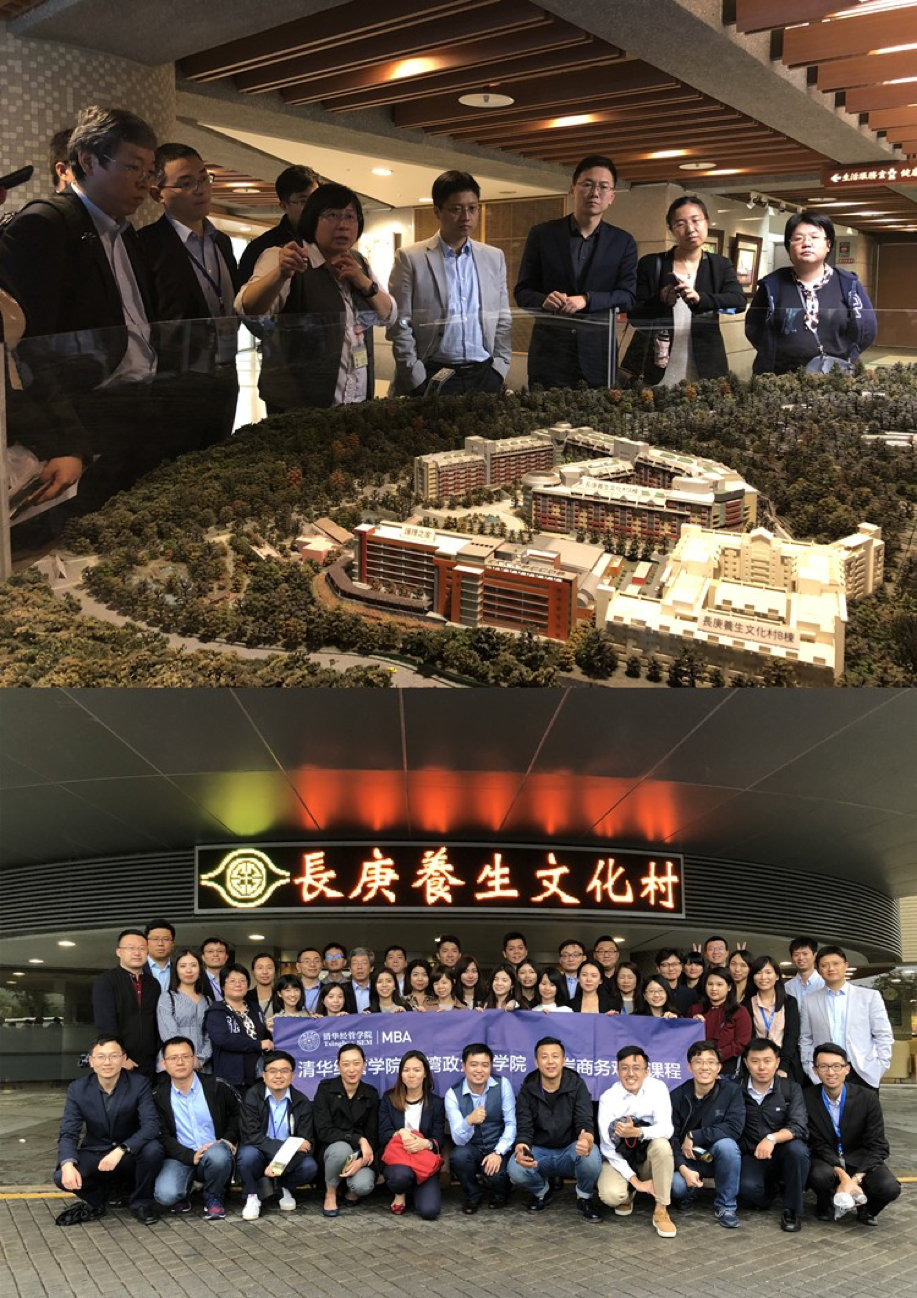
On October 5, Songshan Cultural and Creative Park was selected for visit as the representative of Taipei cultural and creative industry. The park is located in Xinyi district in Taipei, with “Taiwanese Provincial Tobacco and Alcohol Monopoly Bureau Songshan Plant”as its predecessor. Its architectural style belongs to the genre of “Japanese Early Modernism”. The simple and elegant form of architecture and the fine workmanship of the bricks, glass and bronze nails all preserve the historic flavor of Japanese Early Modernism. Songshan Cultural and Creative Park is developed in a conservative manner, and its architecture and park have almost not changed. The detailed and warm explanation by volunteer aunties are touching, and the cultural and creative products, not least the awarded art derivatives, which are environment-friendly and refined, are impressive. All kinds of exhibitions and tasty foods are unforgettable. In the afternoon, students and teachers also went to the South Village #4-4 nearby to revisit a period of history and village life.
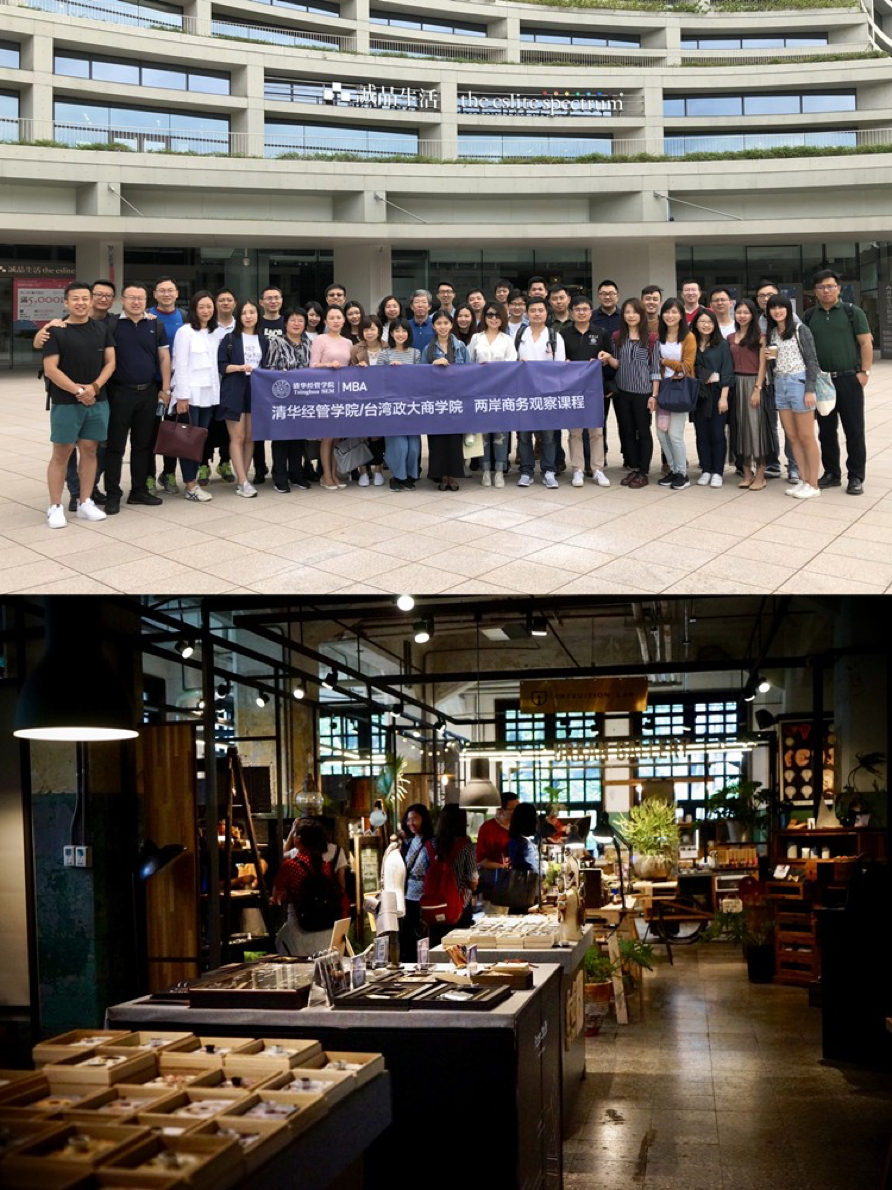
Hospitality: Being Joyful at Every Moment and Being Touched by Every Detail
Since the pick-up at airport, students and teachers of Chengchi University have been offering us the warmest, most thoughtful and caring reception. Our whole journey is full of touching moments and delightful surprises.
Each morning, there are the best milk tea of Taipei brought by Taiwanese students of some group, wakening coffee by Taiwanese students of other group, or honey water specifically bought after they heard that Chinese mainland students have got drunk. After class each day, our Taiwanese classmates of each group take us to visit scenic spots or night markets so that we could enjoy the natural landscape, diverse culture and tasty local cuisines.
There are many unforgettable moments, such as when the“pilot”takes us to visit the campus of Chengchi University, or when we enjoy the mountain pig sausage of Bâ-khang and dinner under the moon, or when we overview the whole city on the 101 building, or when we have a creative banquet in Eslite bookstore. We also teach our Taiwanese classmates about the red packet culture, which is the best entertainment during the long drive. We share with each other the liquor culture, and during the process of mutual toasts, our friendship becomes even stronger and deeper. We also organize a special birthday party for Yu Ce during the class break.
The day of departure was full of nostalgia and reluctance to part. “To miss a city because of a group of people who live there”, Wang Xiangyuan’s words arouse everyone’s resonance. Yes, because of our lovely and intimate Taiwanese classmates, we will definitely miss Taipei and Taiwan region. Certainly, we look more forward to their visit to Beijing between November 17 and 24, so that we could reunite for exchanges and catch up on the recent situation, and start the latter half journey of Chinese Mainland & Taiwan Business Perspectives course.
Written by: Yi Zhihong
Photo taken by: Zhang Jingying, Yi Zhihong
Reviewed by: Zhu Yujie, Ma Jia